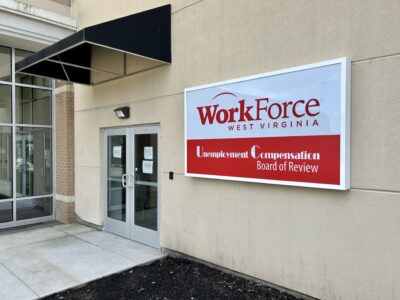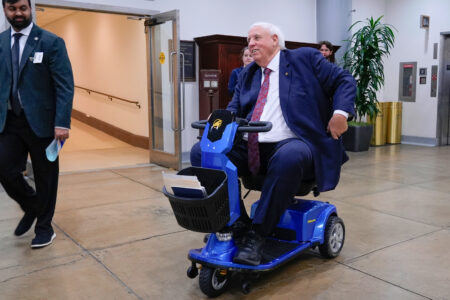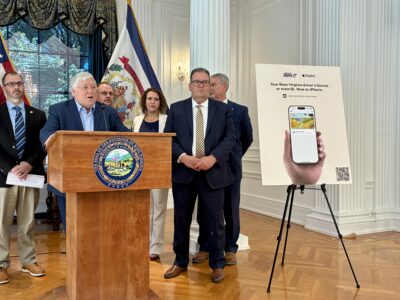No Path Forward for Unemployment Overpayment Waivers

photo by: Steven Allen Adams
Officials with WorkForce West Virginia have identified more than 250 instances of overpayment of unemployment benefits since the end of an executive order allowing the waiver of non-fraudulent overpayments expired.
CHARLESTON — While billions of dollars of fraud likely occurred nationwide due to unemployment benefits paid out during the COVID-19 pandemic, in many cases states overpaid unemployment benefits to out-of-work residents due to no fault of their own.
Now, West Virginia officials are attempting to claw back some of those overpayments of pandemic-era unemployment benefits more than a year after a waiver program meant to forgive those overpayments expired, leaving some recipients of unemployment benefits nearly three years ago unable to repay or show documentation that they were not overpaid benefits.
According to WorkForce West Virginia, officials have identified 251 overpayments of unemployment benefits since Feb. 17, 2022.
That’s when an executive order by Gov. Jim Justice allowing WorkForce West Virginia to waive the recovery of non-fraudulent overpayment of unemployment benefits expired.
“The primary cause of the overpayments is due to those receiving benefits failing to report earnings accurately for weeks in which they received unemployment benefits or due to fraudulent misrepresentation, all of which were discovered through claim audits conducted by WorkForce West Virginia’s Fraud/Integrity Unit,” Andy Malinoski, a spokesperson for WorkForce West Virginia, said.
Justice signed the executive order on March 29, 2021, allowing for the waiver of collection of non-fraudulent overpayments of unemployment benefits distributed through the federal Coronavirus Aid, Relief and Economic Security Act, the American Rescue Act, the 2021 Consolidated Appropriations Act, the 2020 Continued Assistance for Unemployed Workers Act and other subsequent federal legislation meant to provide relief to unemployed workers.
“Some overpayments are waivable, but to be eligible for a waiver of overpayment, it must be determined that the overpayment was received without fault on the part of the claimant,” Malinoski said.
But the window for those who received pandemic-era overpayments of unemployment benefits to have those non-fraudulent overpayments waived by WorkForce West Virginia is closed. According to a letter sent at the end of August to a recipient of unemployment benefits who declined to be identified, WorkForce West Virginia is seeking additional information regarding a March 18, 2020, unemployment claim. The respondent had until Sept. 5 to contact WorkForce West Virginia’s Crossmatch Unit.
“Failure to do so could result in a decision being made with the available information which could result in an overpayment,” according to the letter.
“The letters outline the formal process for investigating these overpayments and determining the proper course of action,” Malinoski said. “Workforce WV takes its fraud identification and mitigation responsibility very seriously and works diligently to prevent improper use of state or federal money.”
By the third week of March 2020, Justice declared a state of emergency to slow the spread of COVID-19, ordering the closure and limitations on certain businesses. The week after that, Justice issued a stay-at-home order and closed all but essential businesses.
That shutdown continued through April and part of May with phased re-opening of businesses. During that time, the seasonally adjusted unemployment rate jumped to 15.7%, only returning to the March 2020 pre-pandemic unemployment rate of 5.3% in June 2021.
According to a December 2021 report from the West Virginia Legislature’s Performance Evaluation and Research Division, the total number of unemployment claims processed by WorkForce during the first year of the pandemic in 2020 increased by 766% over the total number of claims in 2019, from 52,816 in 2019 to 457,399 in 2020.
The sheer number of claims overwhelmed WorkForce in 2020, requiring staffing assistance from the West Virginia National Guard. The influx also prompted the creation of a fraud unit and the Crossmatch Unit.
The state received more than $1.8 billion from the CARES Act alone for unemployment assistance through several programs. The Pandemic Unemployment Assistance program provided up to 39 weeks of unemployment benefits to workers not normally eligible for assistance, such as self-employed workers and part-time workers. The Federal Pandemic Unemployment Compensation program increased weekly unemployment benefits by $600.
The Pandemic Emergency Unemployment Compensation program provided another 13 weeks of unemployment benefits to those who had already exhausted their weekly benefits. The program was later extended by the Continued Assistance for Unemployed Workers act of 2020 and the American Rescue Plan Act of 2021.
According to the report, more than $83 million was paid out in fraudulent pandemic-era unemployment claims in West Virginia.
But the sheer number of unemployment claims across the country caused states to also pay out more benefits to recipients than what the recipients were supposed to receive. A July 2021 report by the GAO estimated that there was more than $12.9 billion in unemployment benefit overpayments between April 2020 and March 2021.
The U.S. Department of Labor allows states to include provisions in law allowing for the waiver of non-fraud overpayments due to agency error or employer error.
Except for the one-year executive order, West Virginia is among 10 states that do not allow for waivers in law. Delegate Kayla Young, D-Kanawha, was the lead sponsor of a bill during the 2021 legislative session that would have created a permanent unemployment benefit overpayment waiver program. That bill, which also had the support of Republicans, including then-House Majority Leader Amy Summers, R-Taylor, was never taken up in committee.
However, there is some movement at the federal level regarding pandemic-era unemployment benefit overpayments. H.R. 1163, the Protecting Taxpayers and Victims of Unemployment Fraud Act, would impose a 10-year time limit on benefit offset recovery by states for Pandemic Unemployment Assistance overpayments.
The bill includes Rep. Carol Miller, R-W.Va., as a cosponsor. The House passed the bill in May, but it has not been taken up by the Senate.





